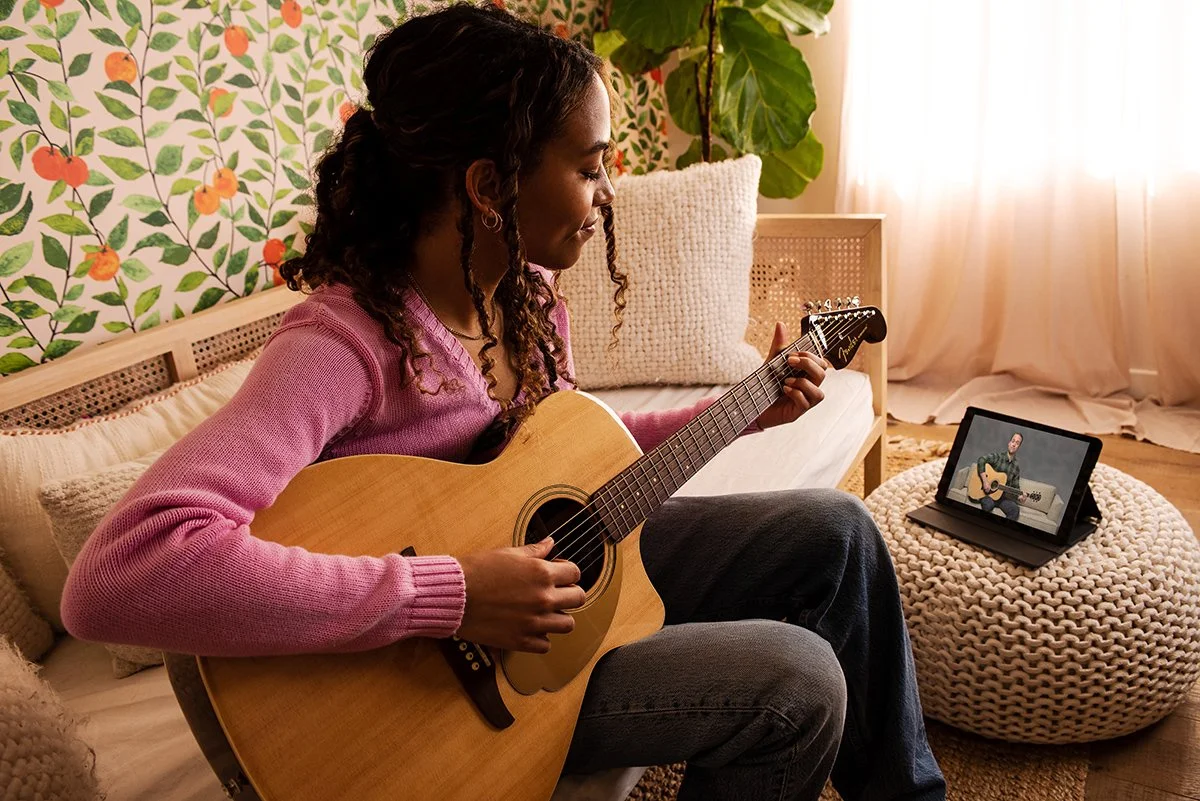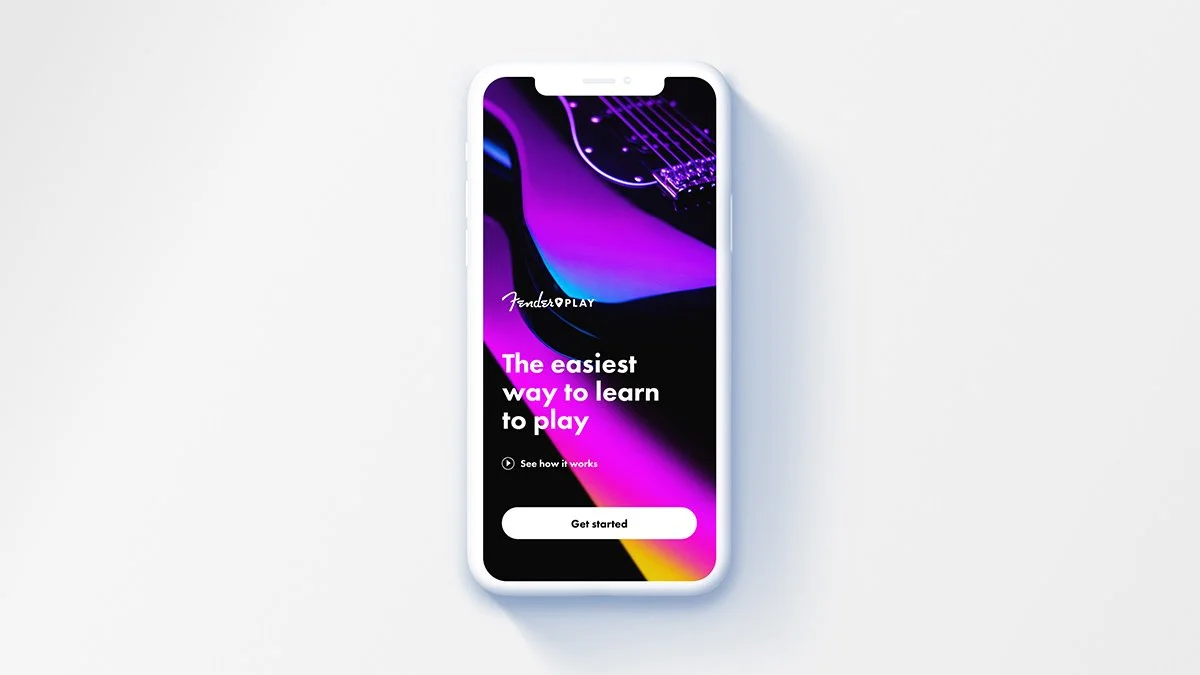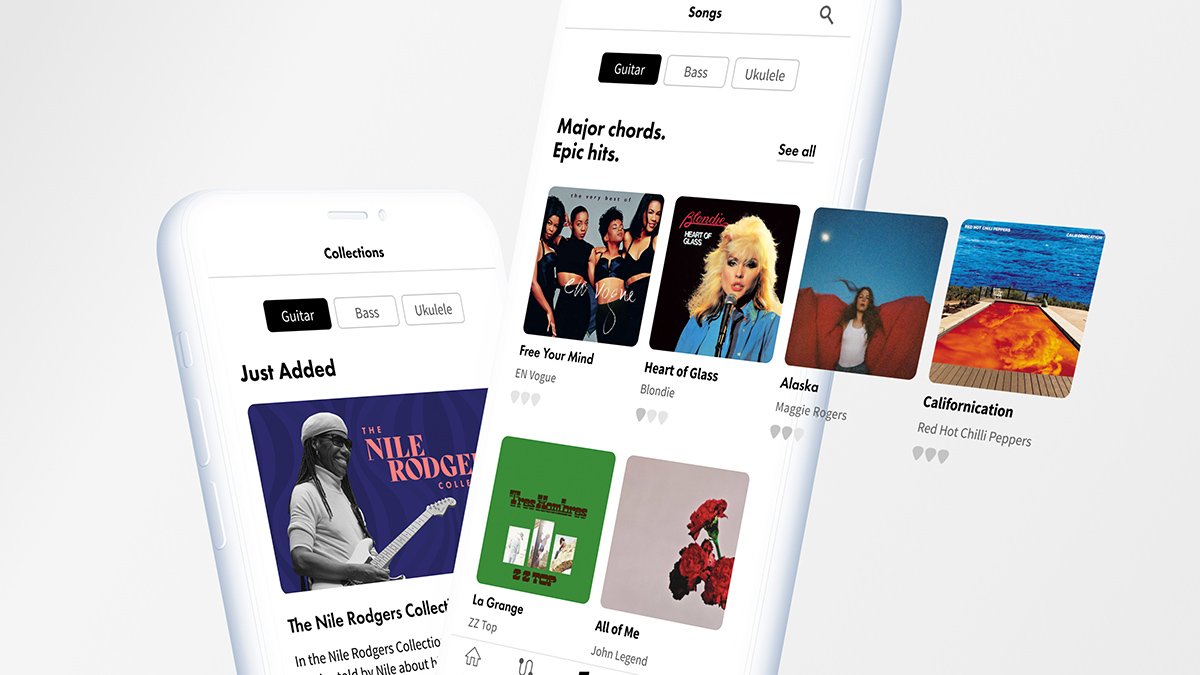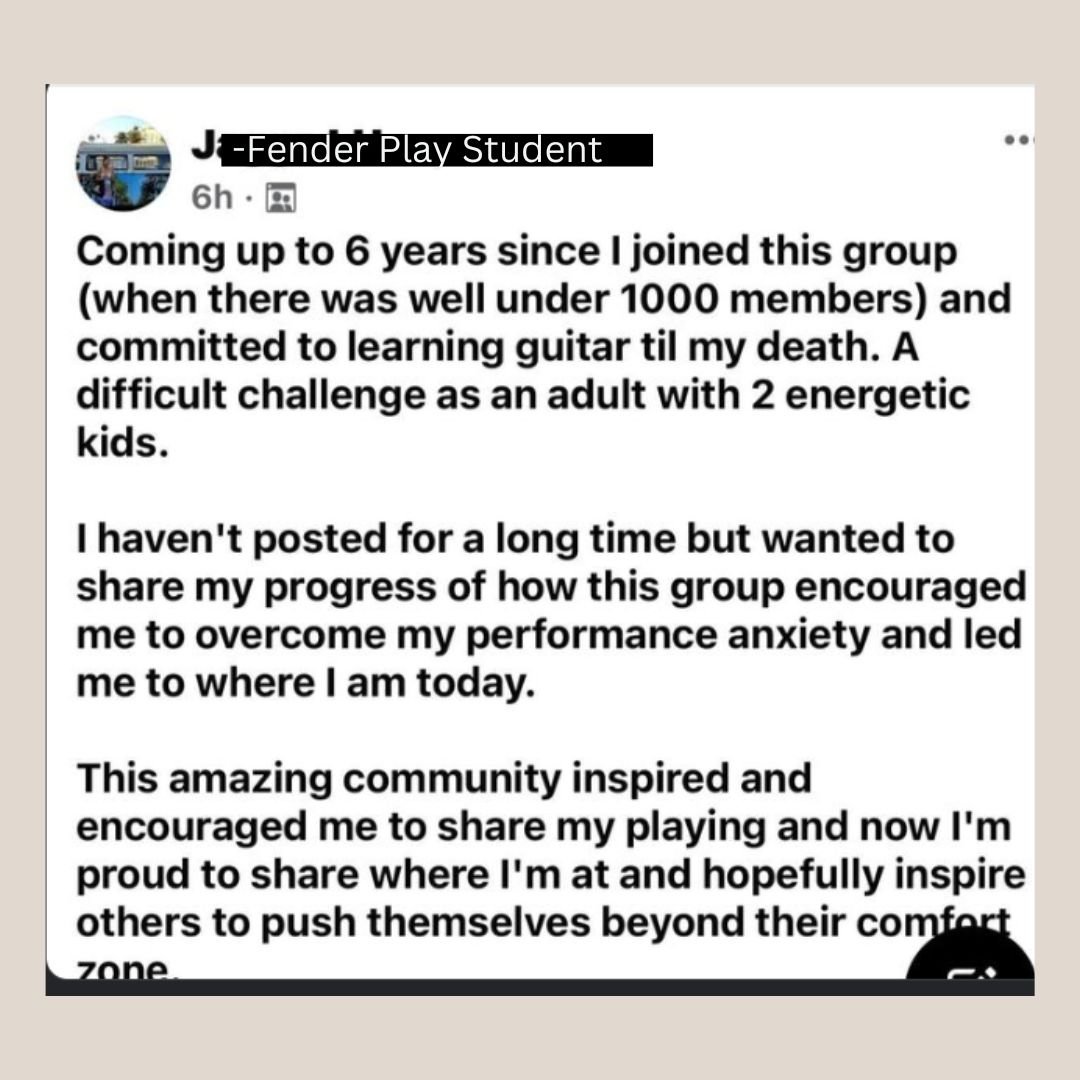Relieve Stress and Improve Self-Confidence by Learning an Instrument: Fender Play’s Matt Annerino Shares Top Tips for Success
Sound & Well: Exploring the Connection Between Music and Health
“Everyone learns at their own pace, and all it takes is 30 minutes, consistently, to build good playing habits. Progress ebbs and flows, but the important thing is to keep playing and have fun!”
If your goals for 2024 include reducing stress, improving self-confidence, and living a more mindful life, you may want to consider learning a musical instrument. Not only does learning an instrument give you a new skill, but it also provides a variety of wellness benefits.
According to research, learning to play an instrument can help decrease anxiety, while also improving your mental health and communication skills. A 2005 study of older adults found that playing music offered a temporary relief from the stress of everyday life.
Playing music can also improve how you feel about yourself. A 2022 review connected playing a musical instrument with increased self-esteem, empowerment, and sense of achievement – all things that are great for your overall health and well-being.
So where do you start when learning a new instrument? Once you identify which instrument you want to learn, some options include local music teachers, group community classes, and app-based programs such as Fender Play. Consider Yelp and Google reviews for finding local teachers.
There are a wide range of apps that can help you on your music journey, and many are budget-friendly. For example, have you always dreamed of learning how to play guitar? Fender Play ($12.50-$19.99 per month) is one such music education app with beginner guitar players in mind.
We caught up with Matt Annerino, Vice President, Digital Marketing & General Manager at Fender Play, to get must-have tips for learning a new instrument and to discuss what the Fender Play app offers students.
What are your tips for setting realistic goals for the first year of learning guitar?
Set a schedule — consistency is key!
Fender recommends setting aside practice time 2-3 times a week. Don’t overdo it — 20-30 minutes is all it takes. Over time, you’ll be able to play longer and your fingers will hurt less — promise!
Millions of songs can be played with just a handful of chords and notes. Learn these and you will always have new things to play.
What are the biggest mistakes beginners make when learning to play guitar?
New players often worry too much about perfection, therefore getting stuck on a challenging new skill or song. Learning guitar takes time, and there is a near infinite number of things to play, so it’s best for new players to explore genres or skills they find interesting and fun!
In a Music Radar interview, Fender CEO Andy Mooney said 90% of new guitar players abandon the instrument in the first year. What are your top tips to avoid joining the 90%?
Take it one day at a time, and don’t overdo it. Everyone learns at their own pace, and all it takes is 30 minutes, consistently, to build good playing habits. Progress ebbs and flows, but the important thing is to keep playing and have fun!
Is Fender Play a good fit for true beginners?
The guided Fender Play curriculum is primarily for beginners and early intermediate players. There are also collections, advanced songs, drills, and other content that any player can benefit from.
In the near future, we are rolling out a new product that will allow players of any skill level to get personalized instruction directly from Fender Play instructors.
What are some of the unique features that Fender Play offers that make it stand out from other app-based music education programs?
Fender Play leads players on a guided journey of learning, practice, and feedback activities that will get them playing something new in a few short lessons. Interactive features such as Feedback Mode allows users to play along with tablature while the app listens. The feature then provides a score plus additional comments to help players improve.
Additionally, Fender films top quality, multi-angle video lessons which show a unique hands-on perspective and breaks down each skill, riff, or popular song. The lessons are consistent in quality and approach, and free of ads or other distractions.
The 1,000+ song library allows players to break down hit music into recognizable riffs, simple arrangements with beginner chords, or per song portion deep-dives that will have them sounding like the recorded version.
With features like tempo/speed control, scrolling tablature, chord charts, chord drills, backing & isolated tracks, looping, tuning, and metronome players can practice at their own pace.
With a welcoming community of fellow players as resources, live instructor office hours to answer every question, streaks and stats and giveaways, players will be supported and motivated to stick with their instrument.
What are some of the most popular choices for easy songs people learn with Fender Play?
Seven Nation Army - White Stripes
Bad Moon Rising - Creedence Clearwater Revival
Comfortably Numb - Pink Floyd
Nothing Else Matters - Metallica
Wild Thing - The Troggs
For What It's Worth - Buffalo Springfield
One Way or Another - Blondie
Heartbreak Hotel - Elvis
Let It Be - The Beatles
Drivers License - Olivia Rodrigo
Purple Haze - Jimi Hendrix
Is there a community aspect to Fender Play?
Fender Play has a very vibrant community on Facebook of current and former Fender Play students. It is an incredibly supportive, positive community where players are free to ask advice on playing tips and what gear to buy.
Fender Play also offers office hours periodically with instructors, where users can get help, and ask questions. From time to time, there are also live sessions where instructors and special guests dissect specific genres, skills, or topics.
In what ways has Fender Play helped students enrich their personal wellness and self-care?
Fender sees a lot of instances where music, the love of playing, and the community has helped with PTSD, self-confidence, and a feeling of accomplishment. Members feel supported and happy to share their wins.
Kids who took part in the LAUSD program over the pandemic were surveyed and the positive impact on their mental health was one of the biggest takeaways.
[Images courtesy of Fender Play]
A University of Michigan graduate, Lizzy Sherman is an award-winning writer/editor. Her work has appeared in publications including Healthline, ETonline, MindBodyGreen, CNET, SI.com, and more. She has been a featured guest speaker at Cal State University Northridge, Digital LA, and The National Association of Audience Marketing Professionals. When she's not writing, Lizzy enjoys yoga and playing guitar. Follow her on Instagram and Twitter: @zillizy, @zillizy16






